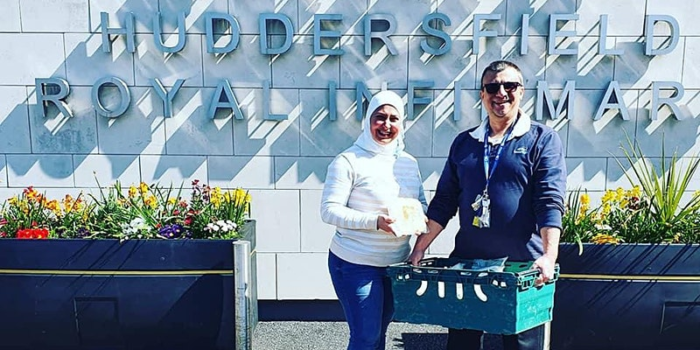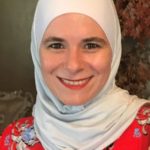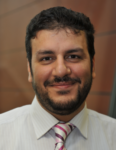A Better Future? Understanding Refugee Entrepreneurship
BA/LV Small Grant Funded Project led by Dr Deema Refai, University of Leeds Business School and Dr John Lever and Dr Radi Haloub, University of Huddersfield
Description
In recent years, the refugee crises in Europe has raised concerns about addressing social and economic needs of the growing numbers of refugees arriving in the UK from countries such as Syria. Since the onset of the Syrian crisis in March 2011, Syrian refugees have been displaced at numbers estimated to be as high as 6.6 million inside Syria and more than 5.6 million outside Syria (UNHCR, 2018).
The UK, along with Germany, Italy, France and Greece, have received the highest numbers of Syrian refugees. These asylum applicants enter the UK independently via air, sea or land, or through the UK Government’s Syrian Vulnerable Person Resettlement programme (VPR), which aims to settle 20,000 in total by 2020 (Home Office, 2015). However, the numbers arriving in the UK have started to decline over the past three years, thus, making this an appropriate time to move away from the focus on the costs associated with increasing numbers of arrivals towards a focus on engagement and settlement. Although refugees are still moving and being displaced around Europe, a less chaotic and uncoordinated period of migration is upon us, and the challenge now is about engaging and settling those refugees that are already in the UK (Crawley et al. 2018).
In this project, we are interested not in the costs incurred by supporting refugees, but what skills and knowledge refugees already have when they arrive in the UK, and how these can be harnessed to enable refugees to make a contribution to the UK economy, thus furthering their social integration. We will explore opportunities to engage Syrian refugees, and find ways to support them and to enhance their active participation in and contribution to the UK economy.
Research overview
Our project will explore the knowledge and skills refugees bring to the UK through working with Kirklees Council, Calderdale Council, Bradford Metropolitan Council, Migration Yorkshire, and local agencies working with refugees. We will explore what types of knowledge and skills refugees arrive with in the UK, and how refugees can be supported to enhance their contribution to the UK economy.
The project applies a qualitative methodology to understand the challenges, motivators, perceptions and feelings of refugees, and how their narrative develops throughout journeys in which they are in continuous relational processes with their contexts.
The project is funded by the British Academy/Leverhulme Small Research Grant: SRG1819\191522.
Outputs
Workshops:
Three phased skill-workshops with Syrian refugees were delivered in Arabic and online in collaboration with experienced entrepreneurs and scholars from the field. The workshops were attended by nearly 20 refugees from Kirklees, Calderdale, Bradford, Wakefield and Leeds.
- Workshop 1: How to come up with a creative idea? (23/11/2020) By Dr Deema Refai (University of Leeds) and Dr Radi Haloub (University of Huddersfield)
- Workshop 2: How to set up an online business? (30/11/2020) in collaboration with Entrepreneur, Adam Agha, Founder of ‘Made in Syria’ – a successful online business.
- Workshop 3: How to bring your idea into reality? (7/12/2020) in collaboration with academic scholar and entrepreneur, Dr Mohammad Almahameed (Copenhagen Business School, and Founder of RWAD entrepreneurial endeavour for refugee business start-ups).
Webinars:
- A webinar on ‘Refugee and Migrant Entrepreneurship during Covid 19’, with Keynote speaker Professor Monder Ram.
- Details available at: https://business.leeds.ac.uk/cees/events/event/558/migrant-and-refugee-entrepreneurship-during-covid-19.
- Recording available at: https://eu-lti.bbcollab.com/collab/ui/session/playback)
Journal Papers:
- Koburtay T, Refai D, Haloub R. (2020). The role of cultural pressures and group favouritism in shaping Syrian refugees’ identity in the Jordanian work environment. International Journal of Intercultural Relations. 79, pp. 24-35
- Refai D, Haloub R, Lever J. (2018). Contextualizing entrepreneurial identity among Syrian refugees in Jordan. The International Journal of Entrepreneurship and Innovation. 19(4), pp. 250-260
Conference Papers:
- Refai, D. & McElwee, G. (2019). Refugee Entrepreneurship: A more Liquid Cage. Presented at ICSB Congress (June 19-21 June 2019) Cairo/ Egypt
- Refai, D. Lever, J., & Haloub, R., Samawi, J. (2018). Escaping the Iron Cage: Entrepreneurial Behaviour of Syrian Refugees. ISBE conference 2018, November 2018, Birmingham/ UK
- Elkafrawi, N., Roos, A., Refai, D. (2018). Strong Structuration Theory: A Way to Further Contextualize Entrepreneurship Research. ISBE conference 2018, November 2018, Birmingham/ UK
- Lever, J., Refai, D. & Haloub, R. (2018). A Homogenising ‘We-Discourse’ and the Social Positioning of Syrian Refugee Entrepreneurs in Jordan: The Business of Hope and the Politics of Misery. XIX ISA World Congress of Sociology (July 15-21, 2018) Toronto/ Canada
News
As part of this British Academy/Leverhulme Small Research Grants funded project, Dr Deema Refai and her collaborators Dr John Lever and Dr Radi Haloub conducted a webinar on ‘Refugee and migrant Entrepreneurship During Covid-19’ On 25th June 2020. The webinar was hosted by the Centre for Enterprise and Entrepreneurship Studies, University of Leeds and included a valuable talk by keynote speaker Professor Monder Ram OBE, Director of the Centre for Research in Ethnic Minority Entrepreneurship (CREME), Aston Business School.

Refai gave a brief on the project and its relevance in relation to refugee issues and the current pandemic crisis. This was followed by an insightful talk by Ram that covered theoretical and practical developments in the field, whilst highlighting the importance of considering these developments to support refugees and migrants. Ram pointed out that the refugee entrepreneurship field is still young compared to other fields, and requires more consideration and in-depth exploration. Ram addressed issues related to social injustice and Brexit, and the implications these can have on our society. The large and profound impact of migrant and refugee communities was stressed during the talk, particularly in light of the wider influences and challenges being faced.
The webinar attracted a wide range of audience ranging between established scholars in the field, ECRs and refugee entrepreneurs from different countries including the UK, Egypt, Jordan and New Zealand. The webinar was concluded by a Q&A session and closing statements from the project collaborators.
- Details available at: https://cees.leeds.ac.uk/news/refugee-and-migrant-entrepreneurship-during-covid-19/, and https://business.leeds.ac.uk/cees/events/event/558/migrant-and-refugee-entrepreneurship-during-covid-19.
- Recording available at: https://eu-lti.bbcollab.com/collab/ui/session/playback

Dr Deema Refai, Lecturer in enterprise and entrepreneurship, Leeds University Business School

Dr John Lever, Reader in sustainable and resilient communities, Huddersfield Business School

Dr Radi Haloub, Senior lecturer in strategy, Huddersfield Business School
